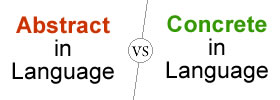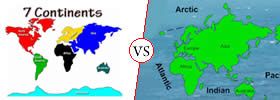Difference between Theist and Deist
Key Difference: A theist is a firm believer in the existence of a spiritual being or beings. God is defined as the creator and supreme power of the universe by a theist. A deist is the one who believes that God created the universe and then abandoned it. Hence, God has no control over the natural phenomena occurring in the universe.
.jpg) Theists believe in the existence of God or gods. God is often looked up as the creator and ruler of the universe. It means that God is considered to be the governor of the universe who intervenes in the matter of universerve. God is generally defined as the perfect holy and infinite being. Theism advocates the notion of dependence of the universe on God. On the other hand, theists believe that the universe acts on the basis of plans created by God. However, theists are often criticized by atheists, pantheists and others.
Theists believe in the existence of God or gods. God is often looked up as the creator and ruler of the universe. It means that God is considered to be the governor of the universe who intervenes in the matter of universerve. God is generally defined as the perfect holy and infinite being. Theism advocates the notion of dependence of the universe on God. On the other hand, theists believe that the universe acts on the basis of plans created by God. However, theists are often criticized by atheists, pantheists and others.
A deist believes in the existence of God. However, the belief is totally based on rational grounds. They do not agree with strong atheists who believe that there is no existence of God. However, they also do not accept the belief related to many religions like theists. The concept that God revealed himself to humanity, etc. are not considered by deists. Therefore, they also reject all the religious scriptures and dogmas based on such beliefs. They believe in God, as they consider that God is the creator of the Universe and also the founder of natural laws. However, after creating the universe God, abandoned the universe and thus, there is no interference from his side. A few Deists believe that God intervenes only during rare occasions. There are numerous typed of deists, who have different concepts and beliefs about the status and functions of God.
Comparison between Theist and Deist:
|
|
Theist |
Deist |
|
Definition |
Theist denotes a person who believes in the existence of a God. A theist believes that God is the creator and sovereign ruler of the universe. |
A deist is the one who believes that God created the universe and then abandoned it. Hence, god has no control over the natural phenomena occurring in the universe. |
|
Broadly categorized under |
Polytheism can be further divided into two categories- Hard and soft. Hard Polytheism considers that multiples gods are distinct to each other. Soft polytheism believes that multiple gods are connected to each other. |
|
|
Origin |
From Greek theos 'god' + -ist. |
The word "Deism" is derived from the Latin word for God: "Deus." |
|
Belief in religion |
Generally, closely related to religion. |
Does not subscribe to the claims of religion. |
|
Effect of God |
Constant effect on our universe. |
No known ongoing effect on our universe. |
Image Courtesy: torahstudies.com









Add new comment